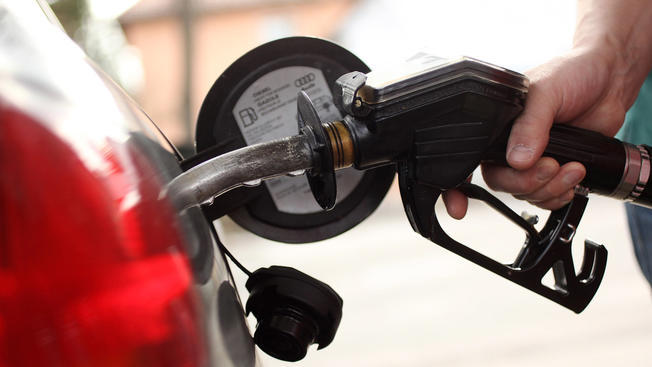Warren Buffett once said, “You only learn who has been swimming naked when the tide goes out.”
In other words, it is hard to evaluate risk until tested by adversarial conditions. Those who made bad decisions are rewarded with embarrassment.
However, in California, the lesson seems to cut the other way. California Democrats have not only mismanaged our state budget, but are now looking for Californians—rich or poor, student or retiree—to pay the price for their mistake. Californians cannot and should not cover the Senate Bill 1 gas tax.
THE GAS TAX HISTORY
Last February, the Oroville Dam, in Northern California, had been overfilled from winter’s rain and a massive erosion in the emergency spillway developed a 200-foot by 30-foot hole. A mandatory evacuation was issued ahead of a possible breach, which would have sent up to 1 million acre-feet of water into the nearby Feather River.
The dam never burst, but public opinion did. Questions about California’s infrastructure filled the media and Republican candidates voiced their anger about California Democrats prioritizing protection for illegal immigration and the High Speed Rail over economic infrastructure.
The Democrats responded with Senate Bill 1, or The Road Repair and Accountability Act. This bill was only passed upon an agreement to amend California’s constitution, Proposition 69, which promised that the funding generated from this tax would be used exclusively for transportation infrastructure.
GAS TAX PUNISHES POOR AND NEGATES MINIMUM WAGE INCREASE
The recent 50-cent minimum wage increase will be immediately nullified by the new gas taxes.
By the end of 2019, Californians will be paying 77 cents per gallon in taxes. By 2021, it is estimated that under California’s cap and trade program, the prices will jump an additional 63 cents in 2021 and an additional 73 cents in 2031. Diesel will fare much worse.
The tax increase will not only affect the cost of gasoline and diesel, but all transportation costs. What most people forget when considering food costs is that food costs not only include production costs, but also transportation costs. When the costs for shipping rise, the final cost for food rise as well. The double cost increase will most severely affect those at the lowest income brackets—students and poor families.
GAS TAX DECEPTION AT THE BALLOT BOX
Despite talk about gas taxes and transportation cost increases, it is shocking to see that the repeal bill, Proposition 6, mentions nothing of the sort. Under direction from California’s Attorney General Xavier Becerra, the ballot reads,
“Prop 6—Eliminates certain road repair and transportation funding. Requires certain fuel taxes and vehicle fees be approved by the electorate. Initiative Constitutional Amendment.”
This is a total disgrace to government transparency. There is no mention of the gas tax nor the attempt to repeal it. The San Francisco Chronicle writes, “The wording is pretty much in sync with the message being delivered by the construction trades and others in a multimillion-dollar TV campaign, just getting under way, to defeat it.”
Mark Baldassare, president of the Public Policy Institute of California, defended the wording by suggesting the bill focuses on the consequences of repealing the bill. However, the consequences listed on the ballot appear to be strictly along party lines, endorsing the bill through scare-tactics instead of listing the consequences of increasing the gas tax.
PROPOSITION 6 IS TO REPEAL THE GAS TAX
Whether or not you agree with Proposition 6 or Senate Bill 1, the debate is about the gas tax increase. Should we focus on increasing transportation revenue or focus on properly managing our current funding? As you vote in November, remember the true, real-world situation. A gas tax increase will have a double consequence against students and the poor by raising fuel and food costs, and the California Democratic party has masked any suggestion of this on your ballot.








